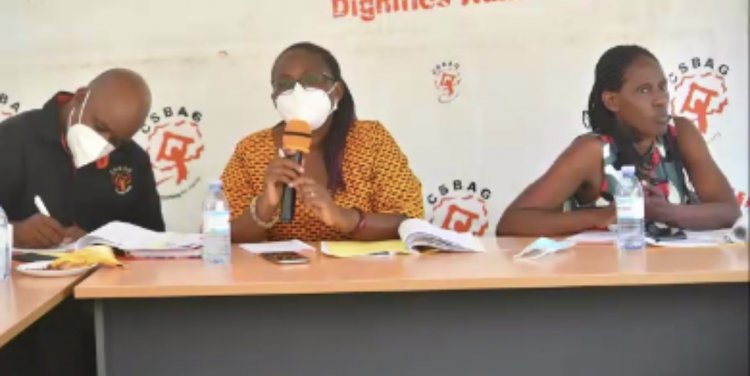Civil Society wants clear policy to guide tax exemptions in Uganda
Currently, there is no clear policy guideline for issuance, management and monitoring of the various tax benefits and incentives issued by the Government of Uganda to different beneficiaries.

The Civil Society Budget Advocacy Group (CSBAG) has called for a clear policy to guide the tax exemptions and other investor incentives.
CSBAG was on Wednesday, 12 January 2022 appearing before the Committee on Trade, Tourism, and Industry to present a position paper on private sector development and manufacturing programmes in response to the National Budget Framework Paper for the financial year 2022/2023.
Patrick Rubangakene, a Budget policy specialist with CSBAG says that according to the 2019/2020 Office of the AuditorGeneral Report, there is no clear policy guideline for issuance, management and monitoring of the various tax benefits and incentives issued by the Government to different beneficiaries.
“Whereas on one hand Government offered a 10-year holiday tax to some companies in the steel sector to promote the growth of the sector, the same Government offered waivers for import duty on steel products to other companies,” Rubangakene said.
He said the absence of a clear mechanism and framework exposes the scheme to mismanagement and abuse with no mechanism to assess the impact of the tax benefits and with some of the offers expiring without follow up.
Rubangakene also called on Government to subsidise the laboratory testing rates to ease small and medium enterprises (SME’s) product certification.
He says that currently micro and small enterprises pay UGX500,000 for a permit to use the Q-Mark for 12 months while others go up to UGX1 million.
He said that as a result, only a few entities are willing to certify their products and Ugandan products are failing to reach the international market. He says this high price has also limited the target of certifying 4500 products.
Rubangakene also called for adequate recapitalisation of Uganda Development Corporation (UDC) saying this will unlock investments in strategic economic sectors.
Mbarara City Woman Representative Rita Atukwasa acknowledged the challenge with the industrial parks and questioned if, in their wisdom, the civil society thinks supporting the Uganda Development Corporation (UDC) is the way forward.
The committee chairperson, Mwine Mpaka tasked the team to explain if there is for UDC capitalisation. Mpaka said as a committee, they expected a more detailed and well researched presentation.
“This information you are giving us, we already have it. We need figures; what is happening in the economy, and how to solve it. We need information on the actual situation on the ground,” Mpaka said.
Rubangakene pledged to come up with a detailed report for the committee.












